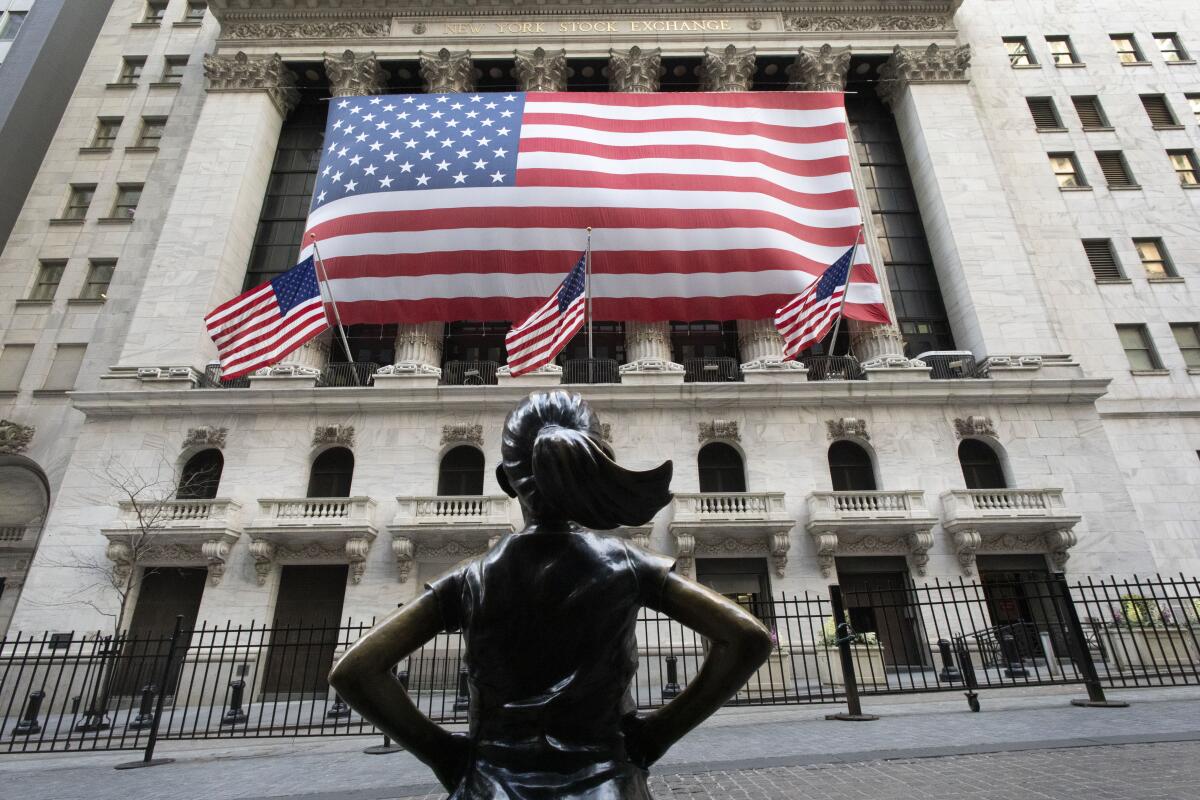Wall Street sees its worst day in weeks on rate concerns as jobs report looms

- Share via
TOKYO — U.S. stocks tumbled Thursday after a Federal Reserve official raised the possibility of delivering none of the cuts to interest rates this year that Wall Street has been banking on, if inflation worsens.
The S&P 500 dropped 1.2% for its worst day in seven weeks. Earlier in the day, a gain of nearly 1% had brought it to the cusp of its record set last week.
The Dow Jones industrial average swung 530 points lower, or 1.4%, after reversing a rise of nearly 300 points. The Nasdaq composite fell 1.4%.
Financial markets were already on edge as traders made their final moves ahead of a jobs report on Friday that could itself shake the market.
A late-day spurt for oil prices amid continued tensions in the Middle East unsettled things, threatening to add more pressure on inflation after oil’s strong gains so far this year.
Around the same time, Treasury yields dropped in the bond market, which can be a signal of investors looking for safer harbors, and a measure of fear among U.S. stock investors leaped.
Stocks slumped after Minneapolis Fed President Neel Kashkari said he’s questioning the need to cut rates if so many areas of the economy look to be solid despite high interest rates.
He had earlier penciled in two cuts to interest rates this year, “but if we continue to see inflation moving sideways, then that would make me question about whether we need to do those rate cuts at all.”
“There’s a lot of momentum in the economy right now,” Kashkari said in an interview with Pensions & Investments.
Kashkari’s hypothetical case, which he said depends on “a lot of ‘ifs,’” cuts at one of the main propellants that drove the U.S. stock market up more than 20% from November into March: the expectation for several cuts to interest rates.
Lower rates boost prices for investments, while easing the pressure on the economy, and stock prices had already jumped in part on expectations for them.
Earlier in the morning, yields had been holding steadier after a report showed more U.S. workers applied for unemployment benefits last week, though the number remains low compared with historical data.
Wall Street is looking for the job market to cool enough to remove upward pressure on inflation, but not so much that it throws too many people out of work and causes a recession.
That has raised the anticipation for a report coming Friday, in which the U.S. government will show how much hiring happened across the country last month. Economists expect it to show a cool-down in March from February.
“As always, the monthly jobs report will have the final say,” said Chris Larkin, managing director, trading and investing, at E-Trade from Morgan Stanley.
In the stock market, Nvidia went from a gain of nearly 2% early in the day to a drop of 3.4%. It was the single heaviest weight on the S&P 500.
Lamb Weston dropped 19.4% after the frozen French fry maker said a transition to a new planning system hurt its ability to fill customer orders. It said the impact from the transition has probably passed, but it lowered its sales and profit forecast for the year. It also cited softer trends for restaurant traffic in the near term.
More to Read
Inside the business of entertainment
The Wide Shot brings you news, analysis and insights on everything from streaming wars to production — and what it all means for the future.
You may occasionally receive promotional content from the Los Angeles Times.










